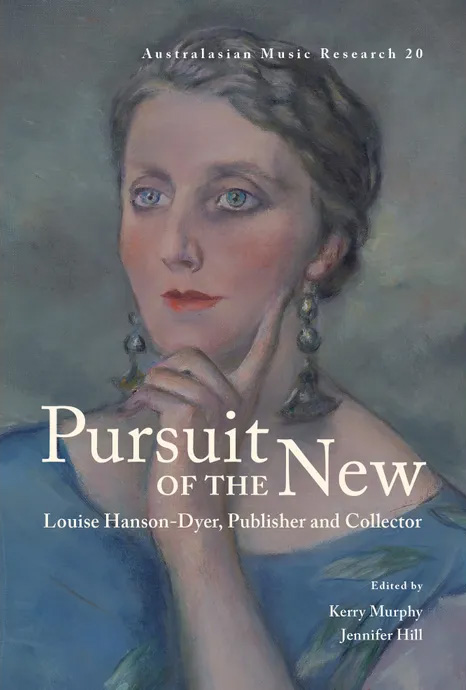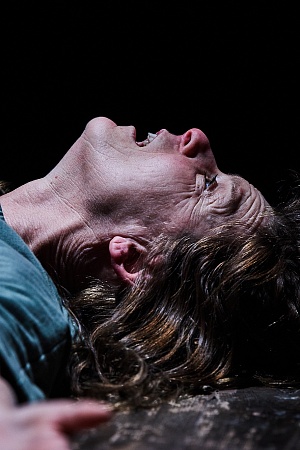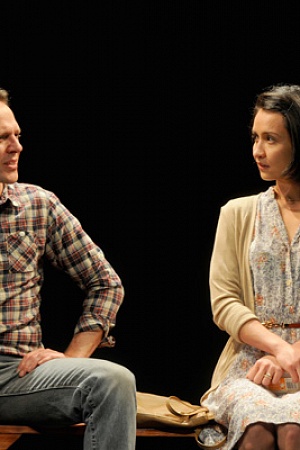Wolf Hall on Stage
Hilary Mantel’s Booker Prize-winning novel Wolf Hall has now been dramatised, along with its sequel, Bring up the Bodies. Brian McFarlane, a regular ABR film and theatre critic, caught the new Royal Shakespeare Company production in London.
If, like me, you were not a fan of Hilary Mantel’s historical doorstops, Wolf Hall (2009) and Bring up the Bodies (2012), you might have approached the Royal Shakespeare Company’s production with apprehension. If, like the others – and their name is legion – you were besotted with this literary phenomenon, you might have had different grounds for apprehension. Neither I nor all those others needed to worry: the play is an unqualified success.
Aficionados must have wondered how Wolf Hall’s 600 pages of intricate conspiracies could be rendered down to play-length, while that smaller group who found Mantel’s writing ‘curiously flat and leaden’, as the Sunday Times reviewer had, wondered if we could cope with listening to it for so long at a stretch. In the event, it must be said that Mantel and Mike Poulton, who collaborated on the adaptation, have made a coherent, lucid, and absorbing drama.
'Mantel and Mike Poulton, who collaborated on the adaptation, have made a coherent, lucid, and absorbing drama.'
In Jeremy Herrin’s skilful production, the crucial lines of the drama are clearly established (not always the case in the novel) and developed. This is a story about the humbly born Thomas Cromwell, who becomes essential to foxy Cardinal Wolsey and then to charismatic Henry VIII, awkwardly placed between wives. Problems and intrigues abound: how can the king divorce Catherine in Catholic England? If the marriage is annulled does this make their daughter Mary a bastard? Henry wants to bed and wed Anne Boleyn, but so do a lot of other chaps. In securing his place in and around court, Cromwell emerges as the supreme courtier, negotiator, manipulator – and survivor.
Ben Miles (Cromwell) creates a riveting sense of how these roles are played out. There is also something strangely likeable about the Cromwell who emerges. This is partly the result of the brief domestic moments in which he is glimpsed as husband and father, but it is also in the play’s unfaltering command of an idiom that somehow belongs to our own period as well to the one in which it is set.
Cromwell is of course at the centre of the play, but the adaptation offers a potent sense of the larger actions swirling round him. There is the arrest of Wolsey for high treason, with a sudden, wildly fantastic but not wholly successful imagining of his being received into the jaws of Hell. There is the rendering of Henry’s dealings with Catherine and Anne, the former hanging on grimly while the latter (she’ll be sorry) works the field and measures her chances. And there is the clash with Thomas More, inevitably echoing Robert Bolt’s play A Man for All Seasons (1960) with its very different image of Cromwell. There is a lot going on in the land’s highest circles, but the play’s strength is in the way it focuses our attention on Cromwell and how he deals with each new challenge to his negotiating skills – and to his own flawed humanity.
The staging of Wolf Hall is both elegant and eloquent. The play opens on a bare stage with a large crucifix seemingly built into its back wall, and with a look of unyielding concrete about the side-walls and a sense of threat about the overhanging metal structures. These perform no realistic function, but, combined with the grim stony blocks of wall, there is a foreshadowing of the events to come. Lives that will end in the tower, that is. However, this ominous setting is also capable of exhilarating transformations, by lighting, costume, and actor placement, as in the coronation scene, or by a sudden whirl of dancers or a boatload of men being rowed down the Thames. But the threat, properly, is never quite dispelled.
Without recourse to too much cod-Elizabethan language, the characters contrive to create a sense of modernity without loss of history. This is especially so in the dealings between Cromwell and Wolsey (and his red garb is a major visual contrast with his severely costumed underlings), and Miles and Paul Jesson make most effective use of this linguistic hybridity. Nathaniel Parker’s Henry is slower to come to such vivid life, but by the play’s second act he has commanded the stage as he should, and his and Cromwell’s scenes are now as compelling as the earlier ones between Cromwell and Wolsey.
 Nathaniel Parker (Henry VIII) and Lydia Leonard (Anne Boleyn)
Nathaniel Parker (Henry VIII) and Lydia Leonard (Anne Boleyn)
(Photograph by Keith Pattison)
In this dark world, sumptuously gowned women are a welcome addition in the grim zone of men. There is a lovely Act One curtain when a sweet young woman, when asked who she is, says, ‘Oh, I’m nobody – only Jane Seymour.’ She is as predictive as those concrete walls. Those playing Catherine (Lucy Briers) and Anne (Lydia Leonard) do ample justice to their different sources of ambition and vulnerability. In a perhaps idiosyncratic response, I was disconcerted by the resemblance of the actress playing Anne to that earlier exquisite Anne, Merle Oberon, of the famous film The Private Life of Henry VIII (1933).
For those daunted by the book’s length, I recommend the play. Apart from its other virtues, it’s all over in three hours.
Wolf Hall, Royal Shakespeare Company, Aldwych Theatre, London, limited season 1 May – 6 September 2014. Performance attended 15 May 2014










Leave a comment
If you are an ABR subscriber, you will need to sign in to post a comment.
If you have forgotten your sign in details, or if you receive an error message when trying to submit your comment, please email your comment (and the name of the article to which it relates) to ABR Comments. We will review your comment and, subject to approval, we will post it under your name.
Please note that all comments must be approved by ABR and comply with our Terms & Conditions.